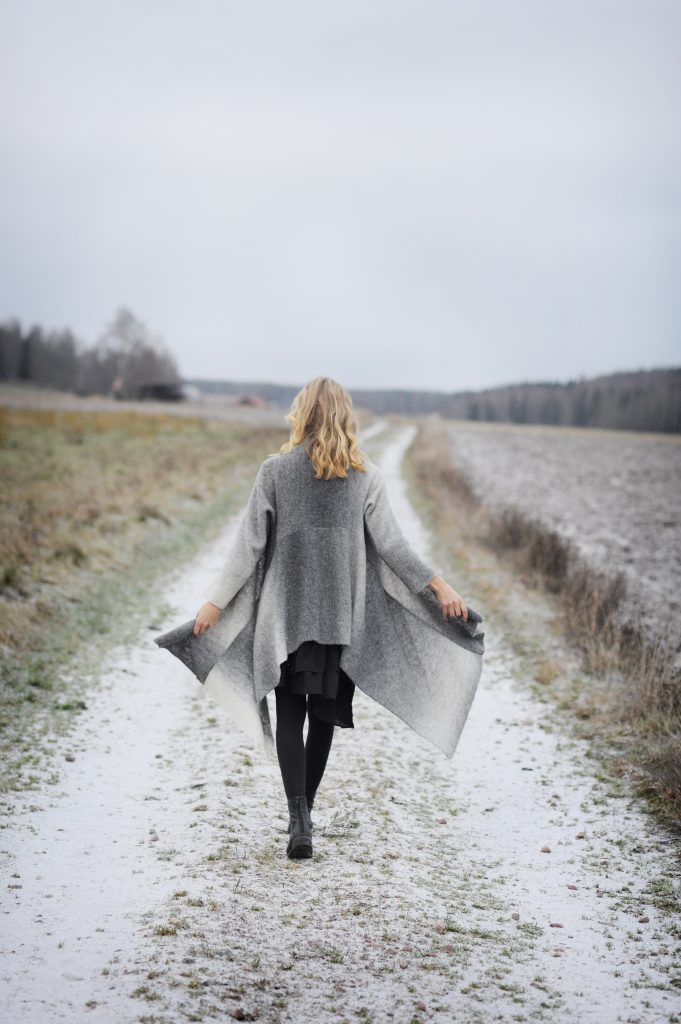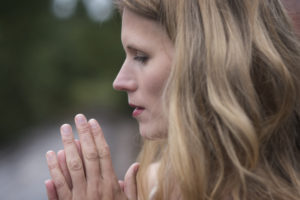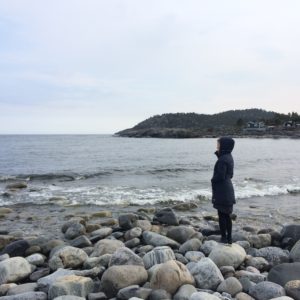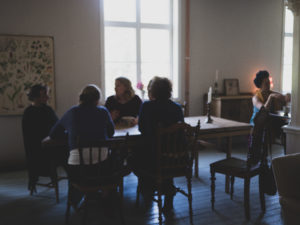“Vocation does not come from willfulness. It comes from listening. I must listen to my life and try to understand what it’s truly about – quite apart from what I would like it to be about – or my life will never represent anything real in the world, no matter how earnest my intentions.”
~Parker J. Palmer, writer and peace activist
The power of a bleeding heart
I was nine when I gave my first speech on animal rights at school. As an extremely shy introvert, speaking in front of people was normally something I’d avoid like the plague. But there I was, terrified to the point of fainting, delivering a speech that I myself had asked to give. Because I felt I had to. Because I had recently learned about cosmetic animal testing and the urge to help those innocent animals was stronger than my fear.
It was always like that for me. I was an earnest, intensely empathic child with only a vague sense of my own boundaries. The suffering of others felt like my own, which made it impossible to turn away.
Growing up, I got involved in the Red Cross, Greenpeace, Save the Children Alliance, women’s shelters and more. I gave speeches, taught groups, participated in legal and illegal activism; I talked, wrote and demonstrated. I did things I never would have dared, had my bleeding heart not demanded it of me.
As a university student, I stayed in a rickety old condemned building, sharing bathroom with some seriously shady characters because I wanted to spend my free time doing charity work instead of having to work extra to pay expensive rent somewhere nicer.
I took pride in being so committed. I identified fully with it and could not imagine doing anything else with my life other than working for a non-profit, right in the thick of it, making a difference for those I figured needed it the most (And whom i somehow believed I was equipped to save).
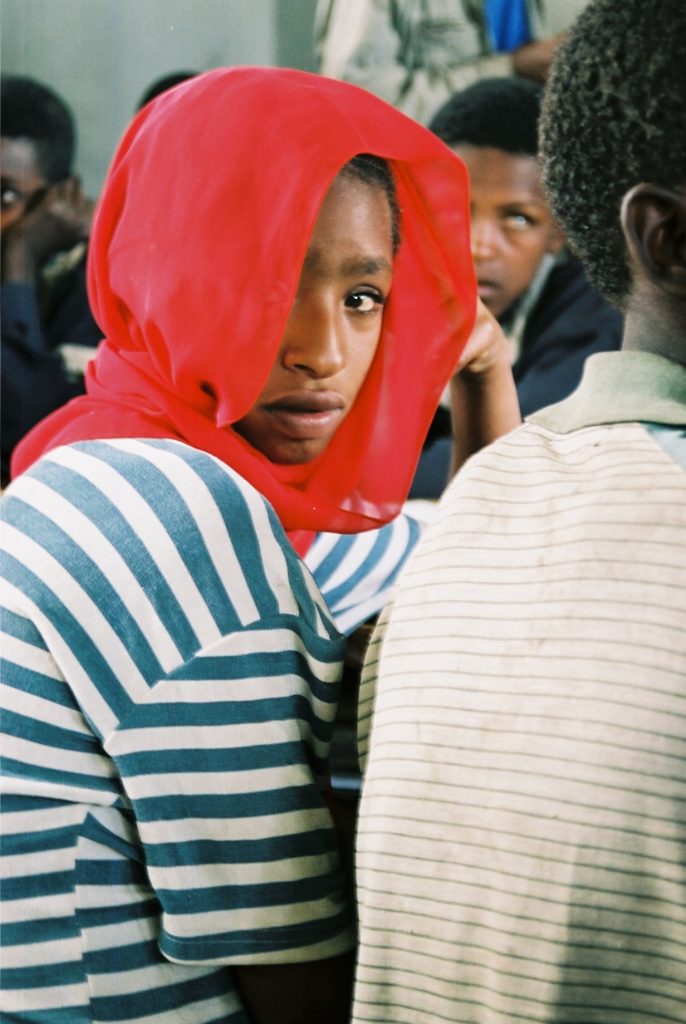
The girl I could not protect
A few years later I sat on a bus in Addis Ababa, Ethiopia, crying my eyes out.
I had just left a meeting at the local Save the Children Alliance office and a conversation about eleven year old girls who are forced to get married and have children, long before their bodies are ready for it. Who tries to give birth through pelvic bones too narrow for a baby’s head to pass through; who struggle for days before the baby’s skull finally collapses and can be birthed. By which time the girl is permanently damaged, sometimes dying.
Tears were streaming down my face and I didn’t try to stop them. The last few days I had met 18 year old single mothers of three who were HIV positive, I had met girls who weren’t allowed to go to school because they had to collect water every day, running a very high risk of being assaulted as they did, I had met girls who were lucky enough to get help at Ethiopia’s only hospital for birth injuries.
Everywhere these girls. And I could do nothing to protect them. Absolutely nothing.
The compassion in my heart turned to pain that turned to numbness.
But now I cried. Now I felt the trembling child within, the raped girl whose wounds were torn open over and over again with every overwhelming meeting. The impossibly sensitive one, who kept going into shock, who was left unprotected, because I was busy trying to protect and help everyone around me. Because I was utterly incapable of maintaining healthy boundaries, even when the work I tried to do was hurting me.
I cried because I realized I couldn’t go on like this any longer. I would break if I continued to push myself, or even worse, go completely numb. I cried because I didn’t know who I was if I didn’t do this work.
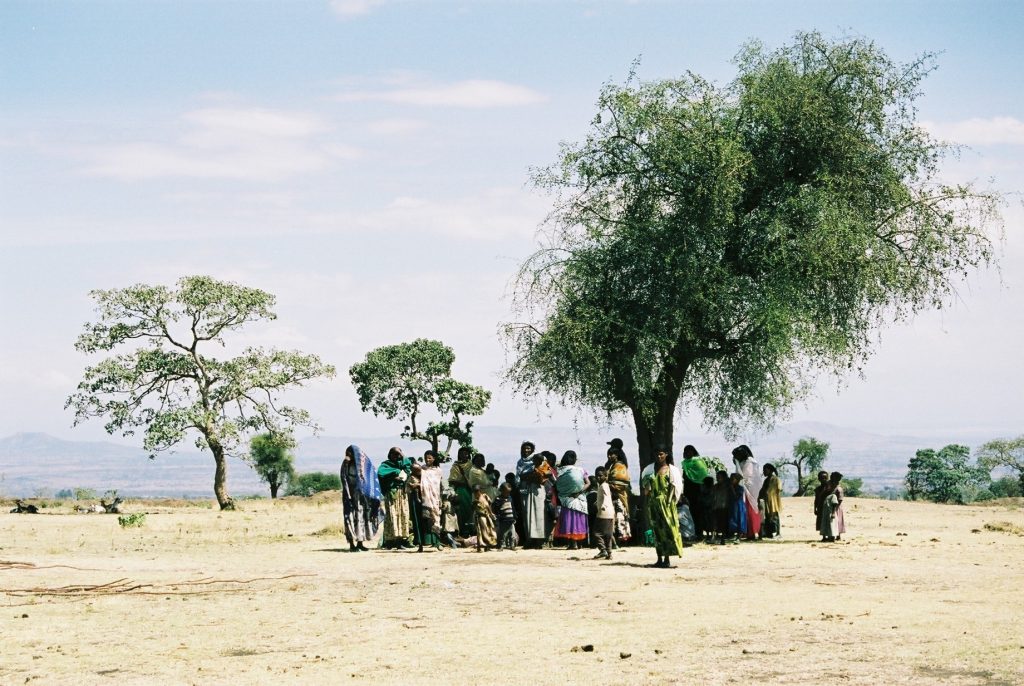
Letting the fantasy die
Next semester I was meant to write my thesis about the use of sexual violence in armed conflicts, with eight weeks of field studies in an African nation. It was not going to happen. I realized that now. It was a fantasy.
In Ethiopia, and later in Tanzania, I met a certain kind of relief worker; a robust kind, thick-skinned and warmhearted. Who did a great job because they did not walk around with their heart on their sleeves. Who could help because they were not so desperately sensitive, and who were not blinded by their own pain to the point where they could not recognise the formidable strength of the people they were there to help and serve.
There was another kind as well. A rigid, formal type, who rarely looked you in the eye and always clutched a bunch of papers to their chests, as if to shield themselves from the people around them; who filtered every human plea through a theoretical lens.
I knew I could never be like the first kind, and I refused to become like the second. For the first time in my life I realized that who I am, how I am, and what experiences I carry with me will greatly impact what kind of work I can do in this world. That willpower alone is not enough.
There was relief in the tears, from no longer having to shoulder something that was truly too heavy for me to bear. But the guilt and the grief was devastating, the feeling of being lost was terrifying. If not this, then what?
I had worn this work like a badge of honor to prove I was a good person, I had used it to justify my very existence, and now I couldn’t anymore. Life had called me on it.
I had never felt so naked.
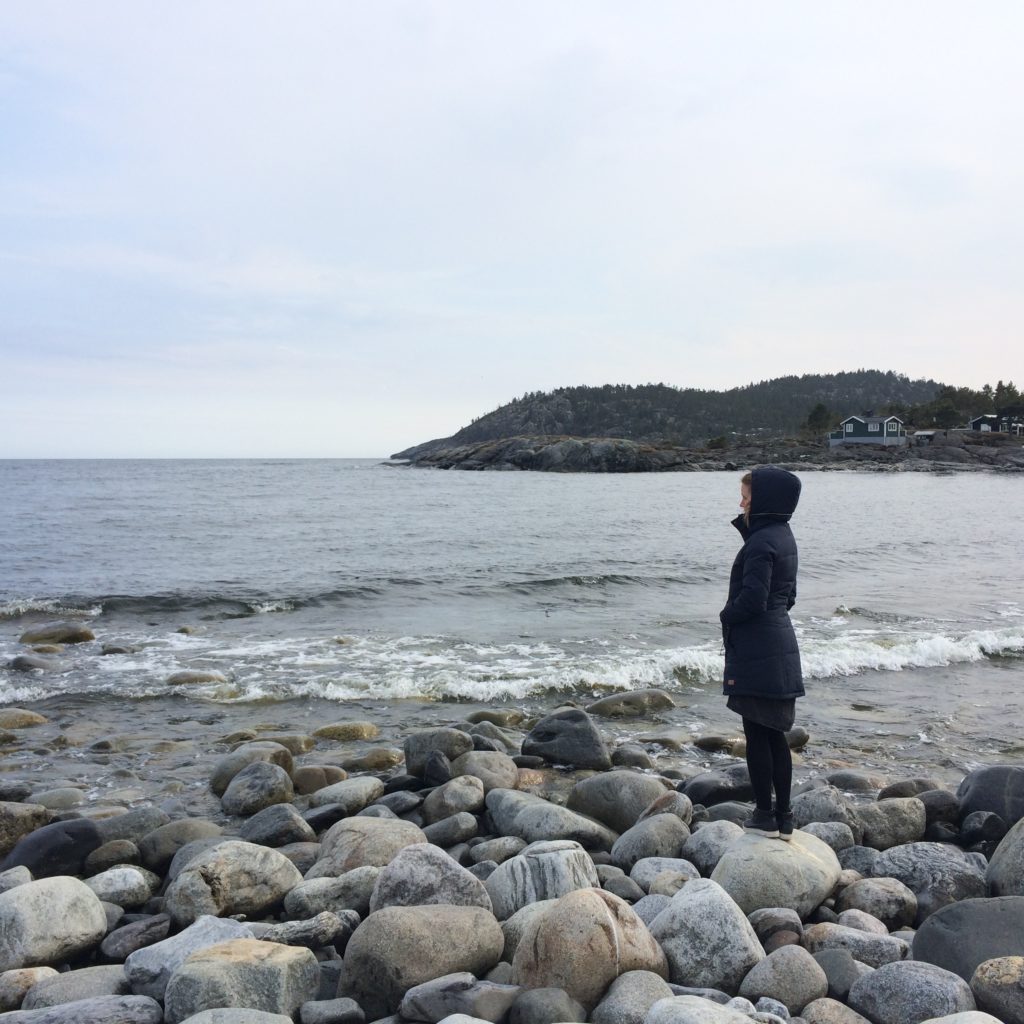
Finding a truer path
Back home I had a decision to make. I knew I had to find another path, another kind of work, a different line of studies. No more pressure. No more fantasies, no more grand claims.
I had arrived at the most basic of questions: What did I want to do?
At first I had no idea how to answer that question, because in my life, what I wanted had never mattered much. It had never been about what I wanted, only what I thought needed to be done, what I felt compelled and obliged to do because of the suffering I saw around me.
But that sense of obligation had led me to a dead end. Life had abruptly closed one door on me and I had no choice but to find new answers, to questions I had never even asked myself before.
What did I want to do? What work would suit who I truly was, instead of who I thought I should be?
For a while I considered becoming a priest. The hunger for depth and devotion was there, as strong as ever. I studied religion and loved it, but I could not find my place in the patriarchal context of the Church; I could not make peace with the scriptures or the traditions. Some women enter the Church and change it from within. But that was not my path.
In the end, I chose literature. My long-time love and companion. For years, I had kept up my literature studies on the side and now I chose to major in it, in spite of it feeling so utterly frivolous and unimportant.
I wrestled with the decision, but I stuck with it. Eventually I gave up trying to justify why I should be allowed to do what I wanted instead of what I should, and I reveled in Shakespeare and Virginia Woolf, I wrote papers of absolutely no use to anyone, except perhaps another (equally frivolous) student of literature.
Step by trembling step I let joy guide me. To the big city with my newly hatched business, where I whirled around the publishing world, meeting writers, editors and others who loved the business of words and writing just as much as I did.
I soon discovered that even though I loved producing books, it was the process of writing that was at the heart of it for me. And as I coached writers I found clues that led me back to my own writing, buried and forgotten since childhood.
Eventually I realized that it wasn’t even about the writing, but creativity. That massive, magical, benevolent force behind it all.
Why I could not say, not at first. I just knew I had to learn more; I had to understand it, live it. It felt urgent. It made my heart beat faster and by now I was so devoted to its rhythm that I chose to give up my fancy position, move from the city and dive headlong into an exploration of the creative process that not only involved my work, but my whole being.
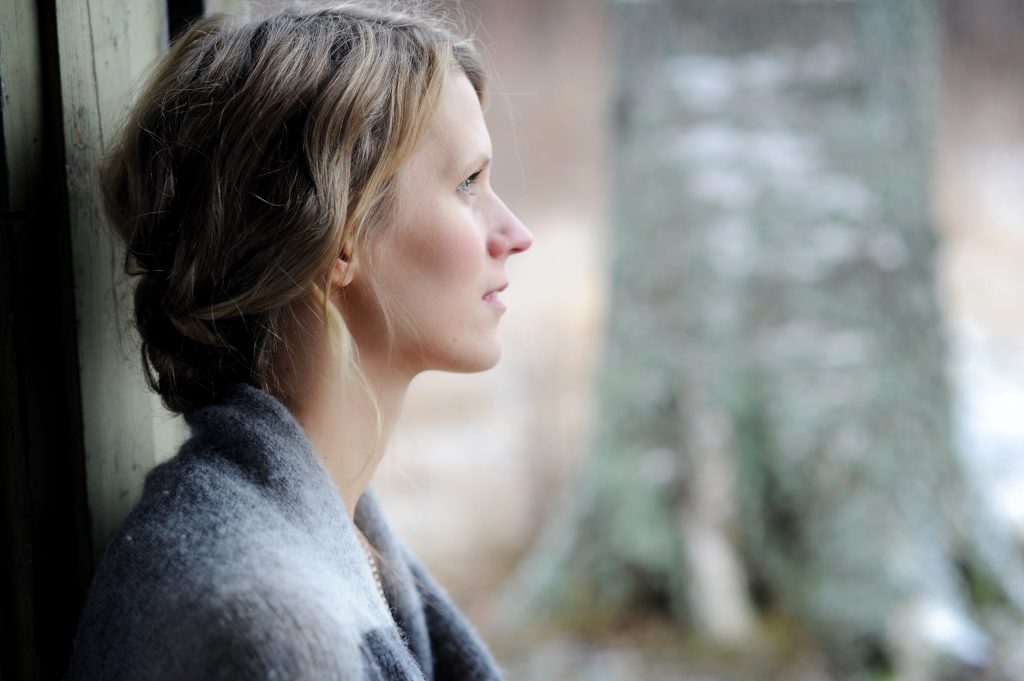
Coming back to where it all started
What I see from where I stand now – having mentored and guided hundreds of creatives and devoted my whole life to this work – is that creativity is everything. Creativity is the driving force of evolution and revolution.
I see that our lives, our happiness, and the wellbeing of our societies are dependent upon our capability to be creative rather than destructive. Nothing less.
I see the healing powers of expressing our true voices and gifts, and that few of us ever get to experience that healing, because we are educated out of our creativity as we grow up.
I see that the disempowerment of girls and women all over this planet robs us not only of our safety and dignity, but of our creative powers, and that is a more devastating loss than I ever realized before. The whole world suffers for it.
I see that the guidance we need to find our way back can be found in our heartbeats.
And so, the circle is beginning to close.
In my work, I find myself once more approaching those girls and women – including myself among them this time – exploring the consequences of us not having a voice, of us not being physically safe, of us not knowing and owning our creative powers. But the resolution that I now have to offer is to heal and reclaim power, voice and agency through creativity.
The very same issues still ignite compassion in my heart, but I approach them from a whole different angle now. I come offering what is truly mine to give, not what I believe I ought to be giving. And that makes the whole difference.
Our true contribution
I don’t know the exact shape and form my work will take in the years to come. If I’ll ever be working on the field again, or if my work will remain here, writing from my little corner of the world, in the silence and solitude that is my dream and my preference right now.
It doesn’t really matter.
I cannot judge the value of my existance. None of us can. We know so little about the thousand ways we touch each other’s lives, how our words and actions affect the people around us, what chain-reactions we ignite.
The only way we can navigate this overwhelming, multi-dimensional world is through paying exquisite attention to the rhythmic whispers of our heart. And to trust that, contrary to what we’ve been taught and to what it might seem sometimes, it will not lead us astray.
I don’t feed anyone’s physical hunger today, but sometimes my words give solace to someone’s soul, I know that much. Sometimes my teachings light the way for someone lost. The love I pour into what I do stretches far, far beyond the reach of my arms. I have no choice but to trust that it’s enough.
What I know for sure is that everything I am, do and give today comes out of the decision to follow my heart. However frivolous and selfish that path has seemed at times, it has led me – and keeps leading me – to an always deepening desire to be of true service. To do good, not just do what’s “right”.
I’m here to give what is in my heart to give. And through my gift I can help you find your own unique place in this world, from which you in turn can share your best contribution. And so we continue to give, one human being to the next, in eternity. (Amen.)
